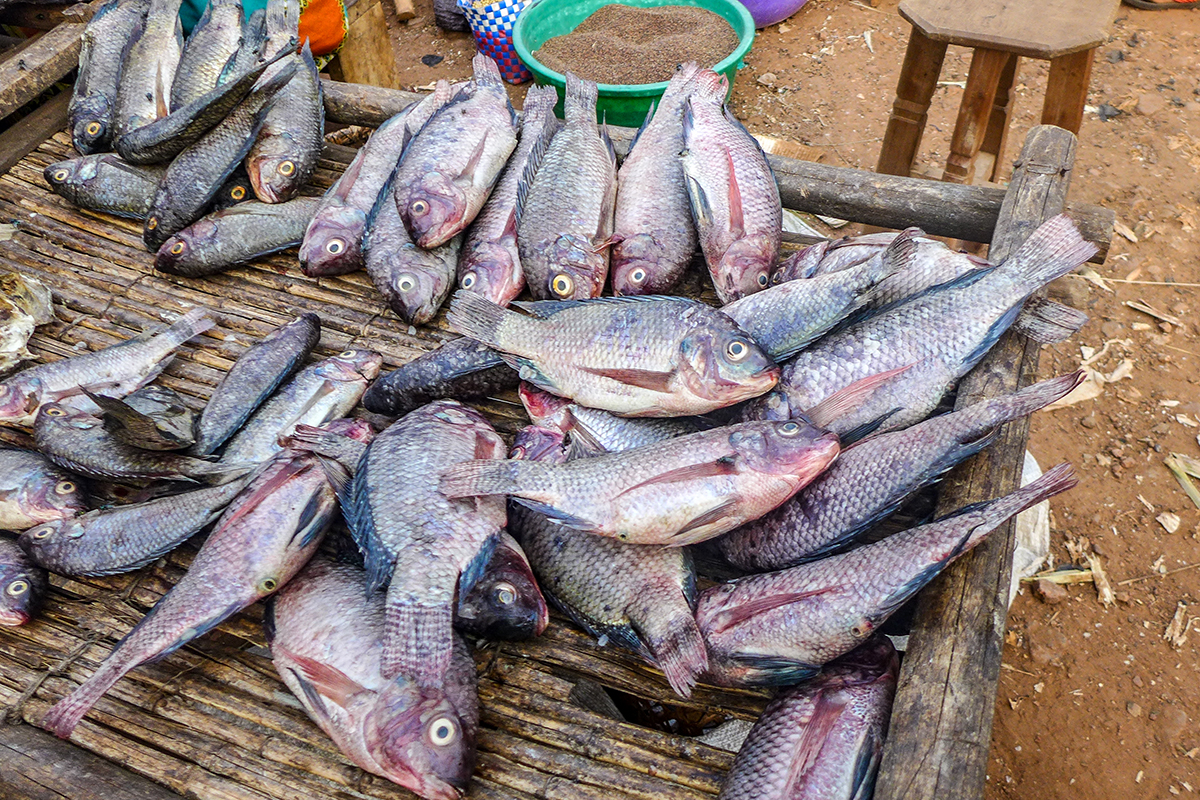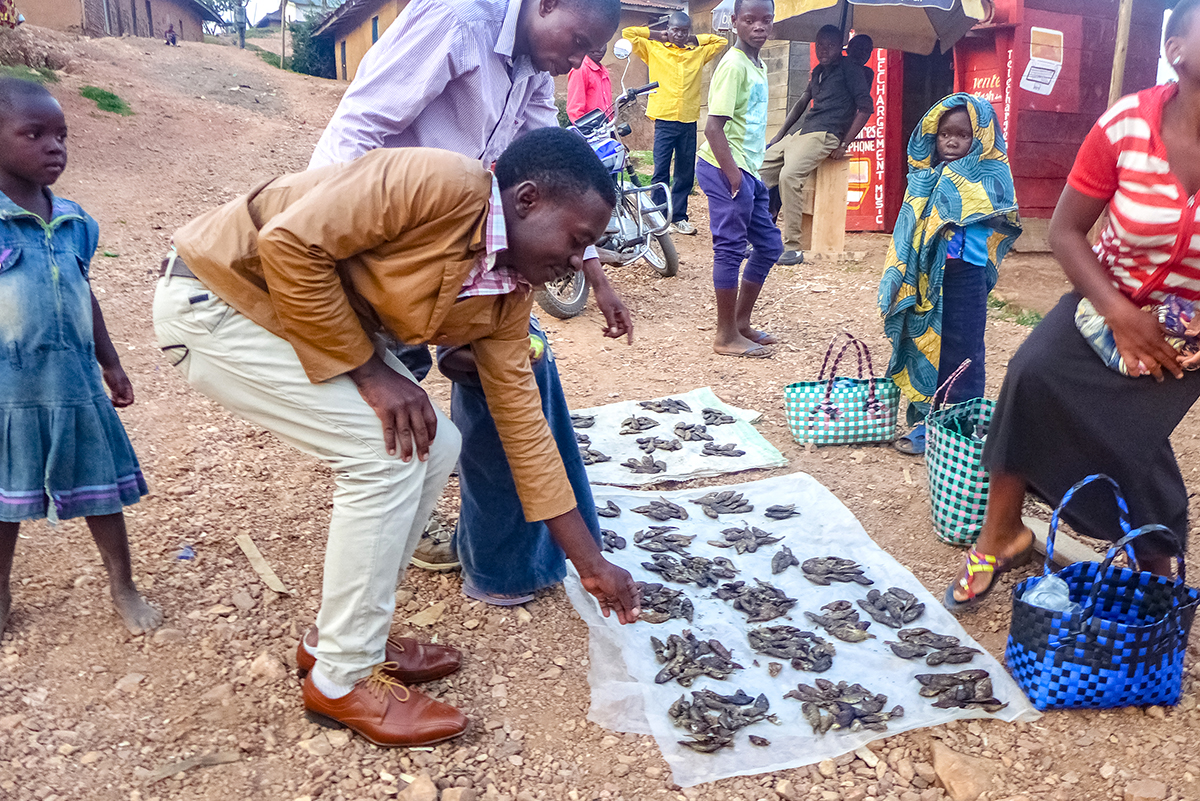
Merveille Kavira Luneghe, GPJ DRC
Vendors and customers haggle over the price of fish at a market in Kirumba, a town in DRC’s North Kivu province. Armed groups control the fishing areas near Kirumba, and this staple food is now in short supply.
KIRUMBA, DEMOCRATIC REPUBLIC OF CONGO — It’s 5 a.m., and the fish sellers who work along Lake Edward, one of Africa’s Great Lakes, are desperate for stock to sell at the local market.
The problem stems from local armed groups, who now control the water and all that comes from it. The Mai Mai militant forces responsible for much of this country’s unrest, have not only severed trade routes in this part of DRC but are now pinching off local options for food and work.
“The Mai Mai group strictly controls fishing activities, levying a weekly fee of 50,000 Congolese francs ($30) on each canoe,” says 34-year-old fisherman Kambale Nzuva, who began working on the water when he was 16.
The armed group demands cash but also fish for the broth on which they feast when night falls, Nzuva says.
Before the Mai Mai took control of the lake, there was always a ban on fishing during the breeding season. Now, Nzuva says, fishing isn’t regulated at all, which has jeopardized the fish population.
As stocks of catfish, tilapia and many other fish species dwindle, the price for this staple food has skyrocketed. Markets in and around the area have little to offer local people.



It’s not just fish that are scarce these days. This fertile area is home to vast agricultural lands, but many farmers have abandoned their fields, worried that they’ll be kidnapped for ransom while they work. It’s common now to hear of families who have been forced to pay large sums of money to retrieve their loved ones, and it’s just as common to hear of farmers who were murdered as they toiled among their crops.
The scarcity of fish can be blamed entirely on the armed group’s activity around the lake, says Kaniki Salomon, deputy spokesman for the International Circle for Human Rights, Peace and the Environment, a local activist organization.
Military efforts to drive out the armed group have succeeded only temporarily. In June, the Congolese army, backed by MONUSCO, the U.N. stabilization force operating in DRC, launched an offensive against the armed groups near the lake, pushing them back about two miles, says Kambale Muratusi, a local elected official. That victory didn’t last long, he says.
“Armed groups are always chased out by the army, retreat to hideouts, and then return to the area to disrupt the daily life of the population,” he says.
It’s a “cat-and-mouse game,” Muratusi says.
Children are suffering most, says Alain Ndungo, a farmer.
“Our children are bearing the brunt of the malnutrition following fish scarcity,” he says. “Those rebel groups will kill us softly, if they continue to operate in our area.”



Ndayaho Sylvestre, GPJ, translated the article from French.
Editor’s note: This story has been updated to reflect the Global Press Style Guide.






